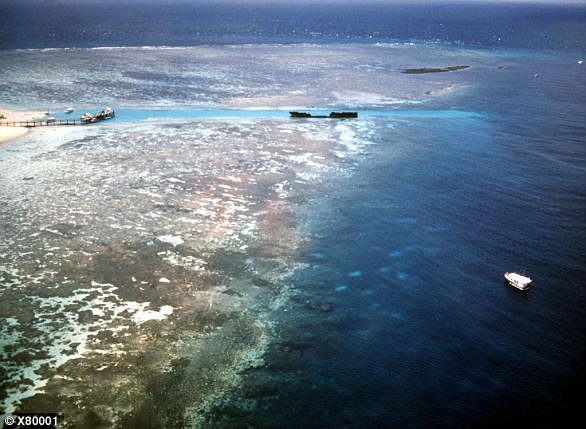Reef fish find it harder to identify competitors following mass coral bleaching
>
It is less than 12 months since Australia’s Great Barrier Reef was devastated by its fourth mass bleaching event in just six years.
Caused by warm sea temperatures, scientists have said that urgent action on climate change is needed if the world’s largest reef system is to survive.
But what is the impact on fish who rely on such reefs?
Well, there is real concern that many species might be wiped out after a new study found that some reef fish find it harder to identify competitors following mass bleaching events.
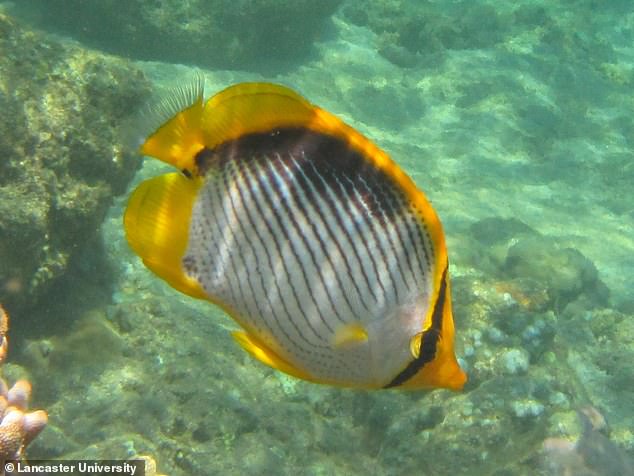
Concern: Reef fish find it harder to identify competitors following mass bleaching events, a new study led by Lancaster University has found
It means they make poorer decisions that leave them less able to avoid unnecessary fights, in turn using up their limited energy.
Dr Sally Keith, senior lecturer in marine biology at Lancaster University and lead author of the study, said: ‘By recognising a competitor, individual fish can make decisions about whether to escalate, or retreat from, a contest – conserving valuable energy and avoiding injuries.
‘These rules of engagement evolved for a particular playing field, but that field is changing.
‘Repeated disturbances, such as bleaching events, alter the abundance and identity of corals – the food source of butterflyfish.
‘It’s not yet clear whether these fish have the capacity to update their rule book fast enough to recalibrate their decisions.’
The team behind the research believe the changes in fish behaviour could have implications for species survival as further global warming increases the likelihood of coral loss.
They made more than 3,700 observations of 38 species of butterflyfish on reefs across five Indo-Pacific regions.
The scientists looked at how the fish behaved before and after a mass coral bleaching event, which occurs when under-stress corals expel the algae living within them that gives them colour and life.
It is possible for the coral to recover, but only if conditions allow it.
Dr Keith and her team found that before a mass bleaching event, encounters between fish of different species resulted in chases 72 per cent of the time, while this increased to 90 per cent after one.
Researchers also discovered the distance of these chases increased, with fish expending more energy chasing away potential competitors than they would have done previously.
Their theory is that when coral die, fish species are forced to change and diversify their diets and territories.
This is causing them to act differently, but not necessarily to their advantage because they are often expending wasted energy and injuring themselves.
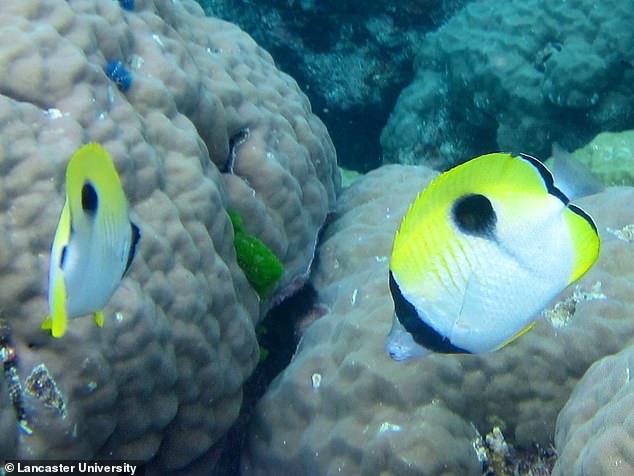

It means they make poorer decisions that leave them less able to avoid unnecessary fights, in turn using up their limited energy
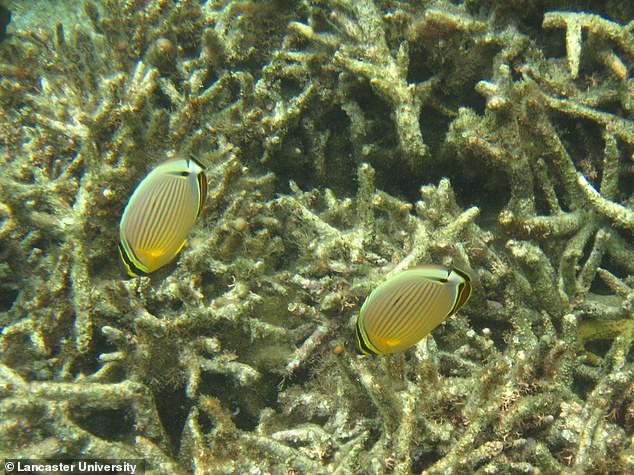

The scientists looked at how the fish behaved before and after a mass coral bleaching event, which occurs when under-stress corals expel the algae living within them that gives them colour and life
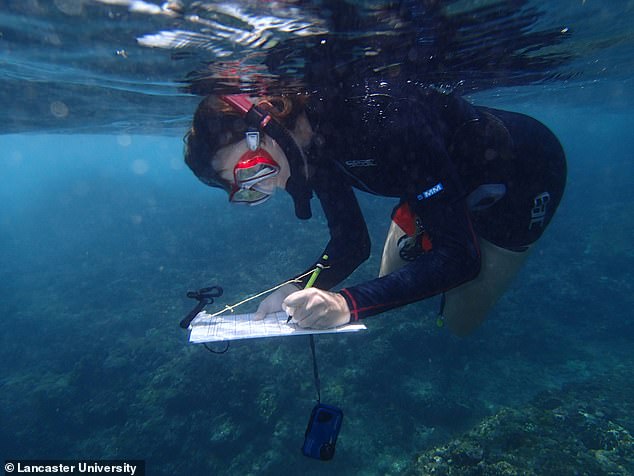

Dr Keith and her team found that before a mass bleaching event, encounters between fish of different species resulted in chases 72 per cent of the time, while this increased to 90 per cent after one
In doing so, it is also disrupting relationships that have matured over thousands of years to allow multiple fish species to coexist.
The researchers fear this will only get worse if global warming continues to heat the world’s seas and in turn causees mass bleaching events.
‘By looking at how behaviour responds to real-life changes in the environment, and by seeing that those changes are the same regardless of location, we can start to predict how ecological communities might change into the future,’ Dr Keith said.
‘These relatively small miscalculations in where to best invest energy could ultimately push them over the edge.’
The Great Barrier Reef’s first mass bleaching event was seen in 1998. It was observed again in 2002, 2016, 2017, 2020 and 2022.
The new study has been published in the journal Proceedings of the Royal Society B.
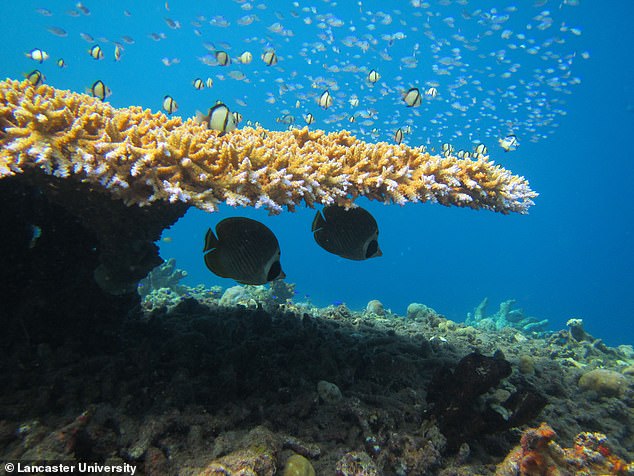

Researchers also found the distance of these chases increased, with fish expending more energy chasing away potential competitors than they would have done previously
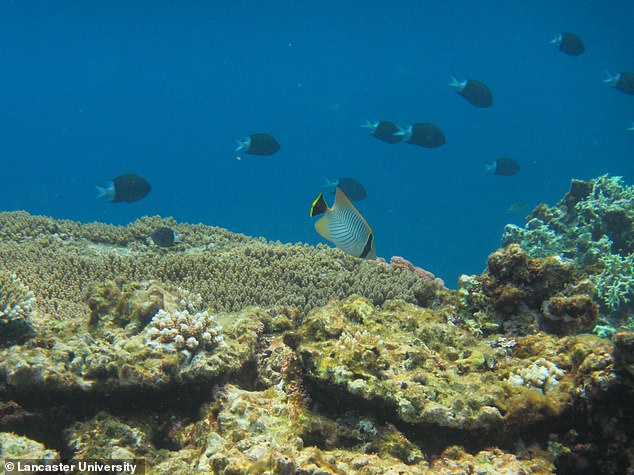

Theory: The experts believe that when coral die, fish species are forced to change and diversify their diets and territories. This is causing them to act differently, but not necessarily to their advantage because they are often expending wasted energy
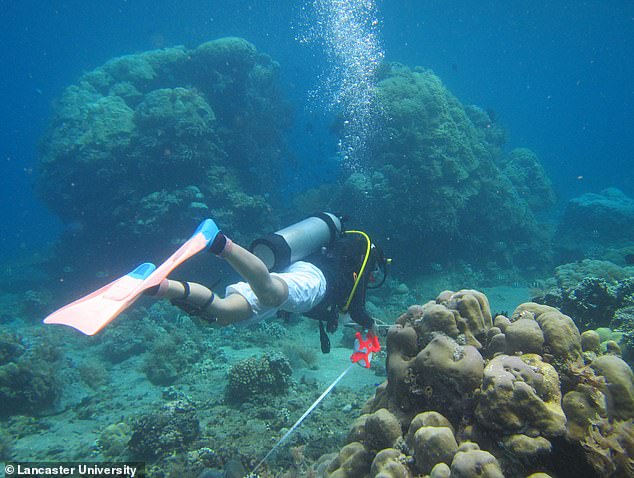

In doing so, it is also disrupting relationships that have matured over thousands of years to allow multiple fish species to coexist
If you enjoyed this article…
Check out how brown algae removes 550 MILLION tonnes of carbon dioxide from the air annually
Or how about the most incredible wildlife sightings off the UK coast in 2022
Talking of the Great Barrier Reef, a UN report found that it SHOULD be put on the ‘in danger’ list because of climate change

